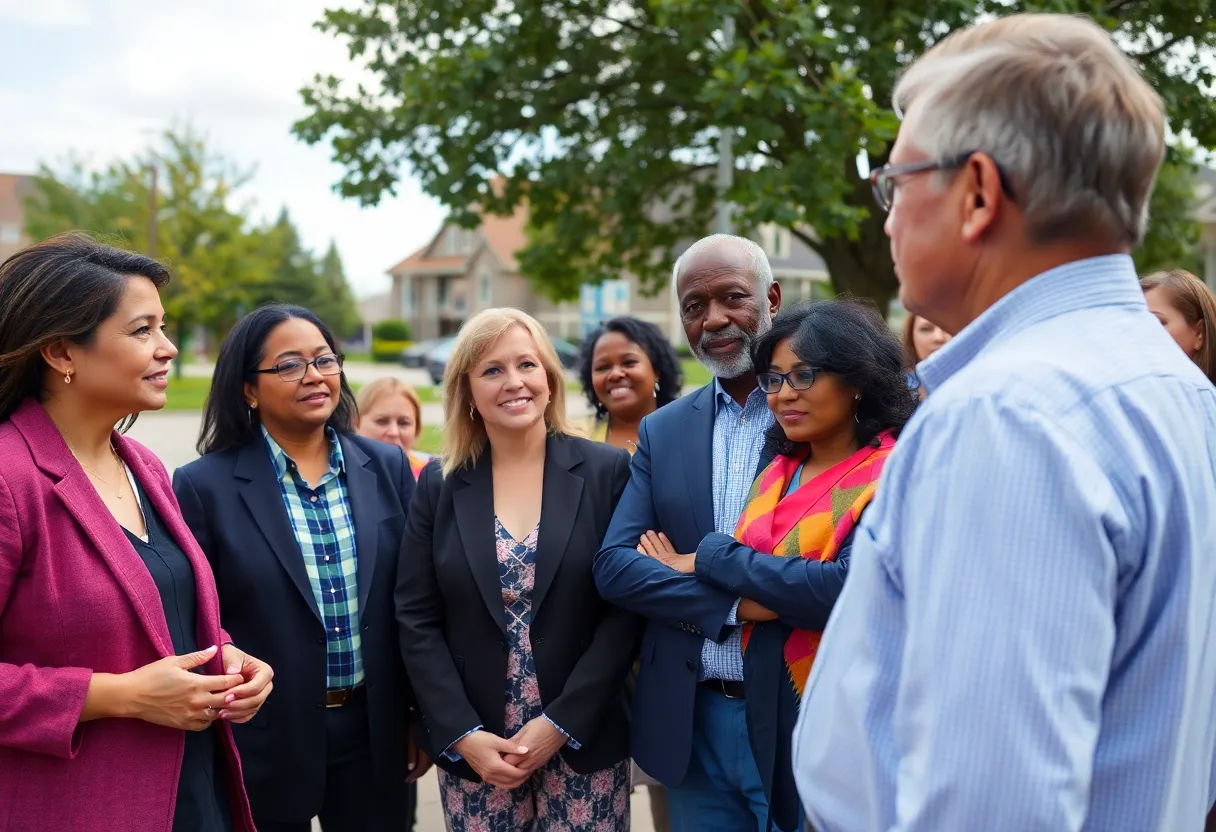Waukee, Iowa, October 16, 2025
In Waukee, Iowa, five candidates are competing for City Council seats in the 2025 election, focusing on economic development and infrastructure improvements. Incumbents advocate for green initiatives, while newcomers seek business tax cuts to stimulate growth. The candidates aim to address local issues such as traffic congestion and housing affordability, all while potential regional collaborations are on the horizon due to shared challenges with nearby areas like Omaha.
Waukee Election Spotlight: Five Candidates Compete for City Council Seats
In Waukee, Iowa, five candidates are vying for seats on the City Council in the 2025 election, with a strong emphasis on economic development and infrastructure improvements. The race highlights key issues such as addressing suburban challenges similar to those in nearby regions, potentially impacting local business growth and community planning.
The most critical aspects of this election revolve around the candidates’ platforms, which directly tackle pressing local needs. Incumbents are prioritizing green initiatives, focusing on sustainable practices to enhance environmental quality and long-term economic benefits. Meanwhile, newcomers are advocating for business tax cuts to stimulate investment and job creation. These proposals aim to address ongoing issues like traffic congestion and housing affordability, which mirror suburban challenges faced in areas like Omaha, Nebraska.
Supporting details reveal that the candidates’ strategies could influence broader regional dynamics. For instance, efforts to improve infrastructure in Waukee, such as better roads and public services, are seen as vital for attracting businesses and residents. The focus on economic development includes plans to foster job opportunities and expand commercial spaces, while infrastructure enhancements target efficient transportation and housing solutions. This election’s outcome might encourage cross-state collaboration, particularly with neighboring areas dealing with similar growth pressures, potentially leading to shared resources or policy alignments.
Further context shows that voter turnout in this election could play a significant role in shaping Waukee’s future. Higher participation might amplify the push for innovative approaches to common suburban problems, such as increasing traffic flow and affordable housing options. Although Waukee is in Iowa, the candidates’ ideas draw parallels to Omaha’s experiences, where rapid urbanization has strained local resources. This connection underscores how local elections can have ripple effects on interstate partnerships, especially in regions facing comparable demographic shifts.
Key issues like economic development and infrastructure are at the forefront because they directly affect daily life for Waukee residents. For example, better infrastructure could reduce commute times and support business expansion, while green initiatives might promote cleaner energy sources and sustainable building practices. Newcomers’ emphasis on business tax cuts aims to make Waukee more attractive to entrepreneurs, potentially boosting the local economy through increased employment and revenue. On the other hand, incumbents’ green-focused plans could position Waukee as a leader in environmental stewardship, attracting eco-conscious businesses and residents.
The election’s timing in 2025 aligns with a period of growth in Iowa, where cities are adapting to population increases and economic demands. Waukee’s challenges, such as traffic and housing, are not isolated; they reflect nationwide trends in suburban expansion. However, the candidates’ approaches are tailored to local needs, with potential implications for regional collaboration that could extend beyond state borders. This includes exploring partnerships that address shared issues like transportation networks and housing affordability.
In summary, the Waukee City Council race represents a pivotal moment for addressing economic development and infrastructure through diverse strategies. With incumbents pushing for environmental advancements and newcomers focusing on fiscal relief, the election could set precedents for how suburban areas manage growth effectively. Voter engagement will be crucial in determining the direction of these efforts, potentially fostering greater cooperation across state lines.
Background on Waukee’s Challenges
Waukee has experienced steady growth, mirroring patterns in other Midwestern suburbs. Issues like traffic congestion and housing shortages have become prominent, driven by population increases and business expansions. While the candidates’ plans are specific to Waukee, they echo broader themes seen in places like Omaha, where similar pressures have prompted policy changes. This context highlights the importance of the 2025 election in shaping responsive governance that supports both economic vitality and community well-being.
To elaborate, green initiatives proposed by incumbents could involve investments in renewable energy and green spaces, aiming to reduce environmental impact while boosting tourism and local businesses. Conversely, business tax cuts advocated by newcomers might lower operational costs for companies, encouraging startups and expansions that could alleviate housing demands through job creation. The potential for cross-state regional collaboration stems from shared geographic and economic ties, where voter decisions in Waukee could influence joint projects with neighboring states.
This election underscores the evolving landscape of suburban governance, where balancing growth with sustainability is key. As Waukee navigates these challenges, the outcomes could serve as a model for other communities facing analogous issues.
FAQ Section
- Q1: Who are the candidates in the Waukee City Council election for 2025?
- Q2: What are the main focuses of the candidates in the Waukee election?
- Q3: How do the candidates’ plans relate to challenges in other areas?
- Q4: What specific initiatives are the incumbents promoting?
- Q5: What are the newcomers advocating for in the Waukee election?
- Q6: How might voter turnout affect broader outcomes?
A1: Five candidates vie for Waukee City Council seats in the 2025 election.
A2: The candidates are focusing on economic development and infrastructure.
A3: Their plans mirror Omaha’s suburban challenges like traffic and housing.
A4: Incumbents push green initiatives.
A5: Newcomers advocate business tax cuts.
A6: Voter turnout could influence cross-state regional collaboration.
Key Features Chart
| Feature | Description |
|---|---|
| Number of Candidates | Five candidates vie for seats |
| Main Focuses | Economic development and infrastructure |
| Similar Challenges | Mirror Omaha’s suburban challenges like traffic and housing |
| Incumbents’ Priority | Push green initiatives |
| Newcomers’ Advocacy | Advocate business tax cuts |
| Potential Impact | Voter turnout could influence cross-state regional collaboration |


